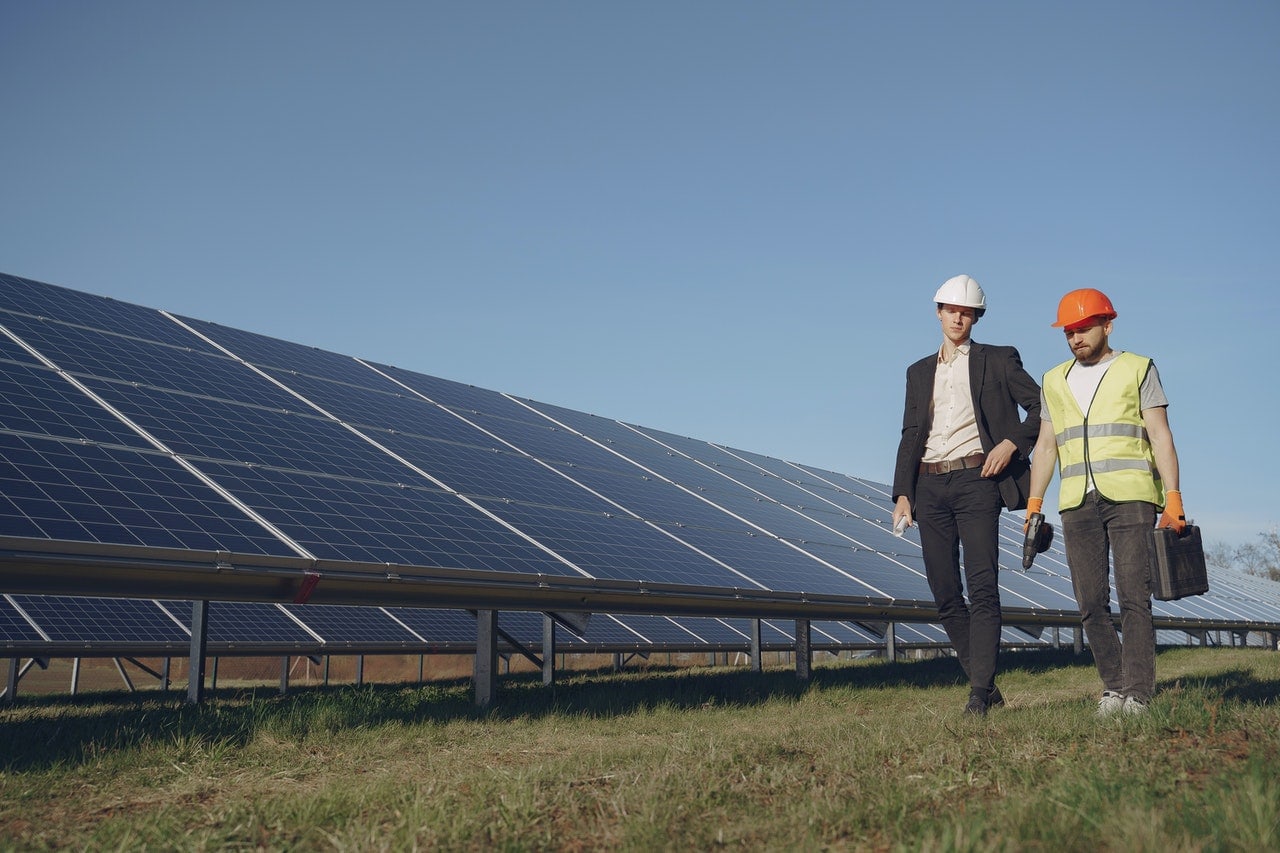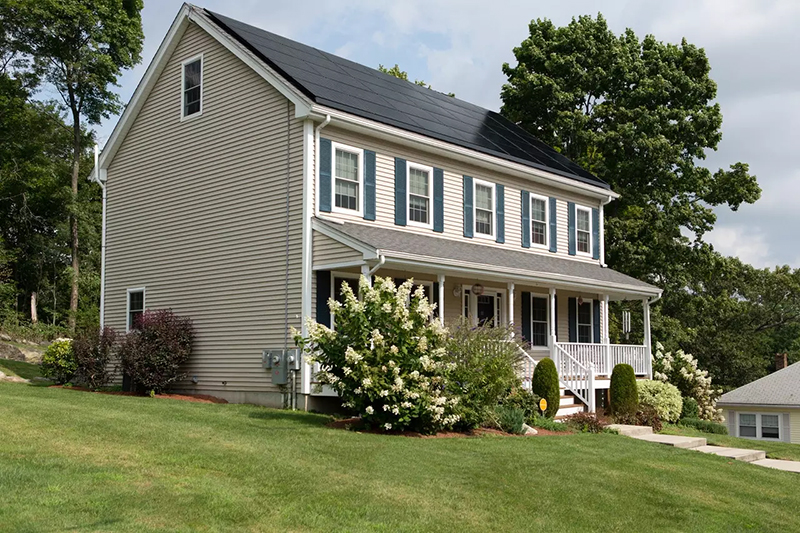Provide Reliable Electricity
Solar photovoltaic (PV) systems have become an essential technology for ensuring continuous power supply to rural healthcare facilities where the other power sources are insufficient or not present. Frequent power outages in many instances prevent healthcare facilities from functioning: Patient care and safety are compromised, particularly in rural India or parts of sub-Saharan Africa.Planning and Execution
- Needs Assessment: The initial step is an evaluation to determine how much energy the hospital or health center needs, along with what type and where. This includes electricity for lighting up rooms, powering machines like MRIs and refrigeration systems among others in critical care units.
- SYSTEM DESIGN: On the base of evaluation, a Solar PV system is intended. This encompasses figuring out the ideal panel count, battery storage unit size and solar inverters for transforming sunlight into useful power.
- Installation by professionals: Installation process is done under trained professional who ensure that the system has placed in best position to get enough sunlight and with secure installation of all components for local environmental conditions.
The operational advantages of dependable
- Uninterrupted Medical Services: From child delivery to surgeries and emergency medical attention, if there is the slightest shutdown in power, it may result in loss of lives.
- Storage of Medications: Refrigeration units that store vaccines and other medications require reliable electricity to ensure good quality, which translates into effectiveness;
- Use of Advanced Medical Technology: Steady power leads to the use of vital life-saving advanced medical technologies such as incubators, ventilators and diagnostic machines like ultrasound & X-ray that are otherwise not accessible in regions with frequent power outages.
High economic and environmental cost
- Efficient in terms of cost: Solar PV systems reduce the need to use expensive diesel generators, since they require repeated re-fuelling and maintenance - hence providing noticeable reductions in operating costs.
- Sustainability - Solar energy provides a sustainable offering that produces no greenhouse gas emissions and degrades the environment like fossil fuels.
Support Telemedicine Initiatives
CARE's solar-powered telemedicine helped facilitate more than 100,000 virtual consultations in remote areas last year alone, per statistics from Brazil's Ministry of Health. The traditional configuration for these structures are small, energy-efficient solar panels that can operate core communication equipment; such as computers to monitor climate data and cameras to observe wildlife migrations while maintaining a reliable internet connection.Characteristics of Solar-powered Telemedicine Systems
- Solar Panels: Capture energy from the sun, small to medium size panels.
- Energy Storage Systems (ESS) : Batteries used to store electricity which ensures constant operation of the station regardless of time, ie. during nights or cloudy days;
- Telemed Machines: Computers and cameras that help with having real-time communications between individuals in their homes who need virtual doctor care, not forgetting to mention computers outside medical facilities for outreach too.
Effect on rural healthcare delivery
- No Travel Costs or Time: Patients can be treated for most of the professional medical consultations, which they no longer need to travel long hours.
- Immediate Specialist Advice- The real-time communication with specialists improves the accuracy and speed of diagnosis.
- Improved Follow-up Care: Continuous remote monitoring and check-ins provide better chronic disease management.
Ensure Vaccine And Medicine Storage
Solar photovoltaic (PV) systems have become a cornerstone in securing the integrity of vaccines and medicines that need to be tightly temperature regulated at points-of-care, such as rural healthcare facilities. For example, Haiti sees the benefits of solar-refrigeration in off-grid clinics. Since the 2010 earthquake, solar refrigerators have been placed in rural health centers under a new Haitian health ministry program supported by international donors. The result was a decrease in the spoilage rates of temperature-sensitive pharmaceuticals on this initiative.
Cold Storage Configuration
- Solar Refrigerators: Built for use on DC (direct current) and powered by solar panels, these refrigeration systems are reliable and virtually energy independent where critical temperatures must be trusted as long low-light conditions not frequently imposed.
- Battery Backup Systems - Save your extra solar energy on a battery and enjoy using electricity at night or during cloudy weather times.
On days when our electricity is down, which in regions like sub-Saharan Africa we go without power for up to 3-4 a day hustles and bustle at the hospital become more chaotic as solar-powered refrigeration can only help them deliver their services better. According to Nestor Fagaras, World Health Organization Liaison in the country for immunization services "In 2013-14 studies proved that with solar refrigerators regulated vaccines we were able to achieve a reduction of upto 50% vaccine spoilage comparing it from vales depending solely on conventional power.
Process of Implementing Solar Refrigerators
- Site Selection: Determining health facilities with unstable power affecting vaccine storage.
- Technical Previsit & Installation (Sizing the solar system and configuration followed by professional installations)
- Operation and Maintenance : Local staffs were trained to operate and maintain solar reefer units for long term durability.
A study and pilot project in Kenya, for instance found that solar-powered refrigerators kept at between 2-8 degrees Celsius-the recommended range-consistently. This ability is necessary in order to obtain enforcing vaccination programs overall and also during mass-vaccination-dispensations like of measles or Covid19.
Solar-Powered Refrigeration
- SolarPowered Refrigeration:E rg H efficd ency Solar frigersto ref to be mcustrshient or ficient, eding g the est eesary heto attoer elemins radhescenc tture.
- Reliability in Remote Areas - The reliability of solar refrigerators continues to make them a game-changer for backup applications and places where traditional energy infrastructure is either inaccessible or unreliable.
Enable Mobile Health Clinics
Solar photovoltaic (PV) systems have helped mobile health clinics to achieve much increased operational range and efficacy in off-grid, underserved regions. A good example is in Mongolia, where delivering traditional health care services present with challenges due to the vast rural expanses. Solar-powered mobile clinics are so important here and provide basic health services from primary care visits to prenatal checkups and vaccination programs.
Solar-Powered Mobile Clinic
- Solar Panels - Deployed on the roof of a mobile health unit, solar panels offer an endless power supply for medical equipment and telecommunications lines.
- Energy Storage Systems: Large, lithium-based batteries hold the energy until it is needed for a nighttime project or on an overcast day.
Use of solar power in mobile health clinics has facilitated healthcare providers to offer a variety of medical services directly at the community level. In some parts of Sub-Saharan Africa, such clinics create over 10K health consults annually which has amazing impact on the overall societal health.
Mobile Clinics Are Beneficial In Operation
- Extended Hours of Operation: The clinic may operate during non-daylight hours which would allow for operations such as emergency services and after-hours care.
- Greater Medical Services: Solar panels can support more sophisticated medical equipment that would lead to more services such as ultrasound scanning and continuous monitoring for patients.
In Australia, the Royal Flying Doctor Service have created solar powered facilities to aid their services around rural and remote areas. The clinics have solar-powered refrigerators to hold vaccines and medicines, which they transport by horse for long-distance health patrols that can run several days into the jungle to serve far-flung indigenous populations.
Sustainable Power Supply
Solar photovoltaic (PV) systems is an option for rural healthcare facilities which provides a sustainable power supply that can be utilized not only to keep the patients healthy but also to improve environmental hygiene. For example, in the Philippines solar installations on rural health units have decreased a reliance on expensive and environmentally polluting diesel generators. On Palawan alone we saw a drastic move from just 30 health centres powered by diesel to solar, saving around 70% on fuel and slashing operational costs as well emissions.
Solar PV Implementation
- Analysis of Energy Requirements: Estimating how much power (in kW) the healthcare facility needs so that we recommend or advise you on what size your solar PV system should be for this particular need.
- Solar PV System Design Tailored to our Needs: This is the design of a solar system that suits your site's energy requirements and location.
- Installation and Integration: Solar panel, inverter & battery professional installation followed by power infrastructure integration.
This shift, guarantees access to electricity and max up the modern global sustainability visions. In East Africa, power outages had previously resulted in hospitals shutting down equipment and turning women away who came to give birth at facilities; this could have changed with these types of projects.
- Advantages:Affordable, beneficial over the long-term
- Decrease in Operational Expenditure: Solar PV systems reduce the dependence on high-cost and unstable fossil fuel markets.
Solar systems last 20-25 years on average and require little upkeep, which has meaningful financial return over the life of a system - while being less resource intense.
Environmental Impact and Energy Security
- Energy securityImproved: Solar energy reduces the risk of interruptions in power supply and enhances healthcare resilience.
- Environmental Benefits: Use of sustainable clean energy delivers on reducing greenhouse gas emissions and improves local air quality by healthcare organisations.



